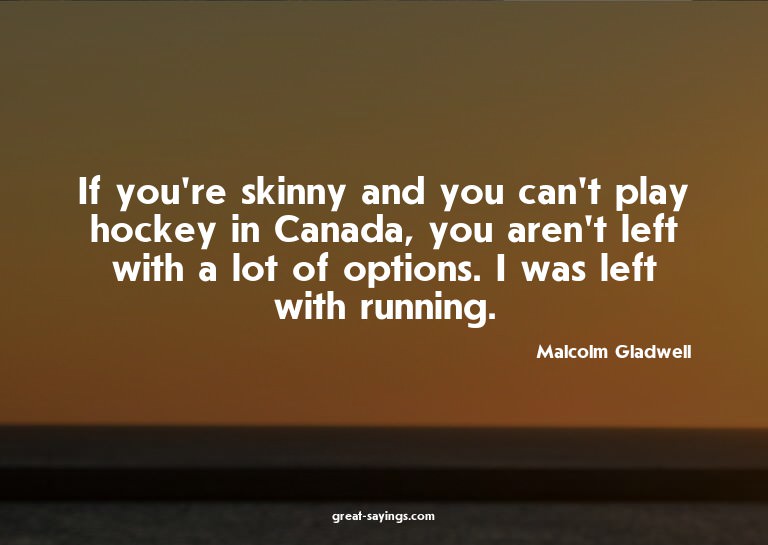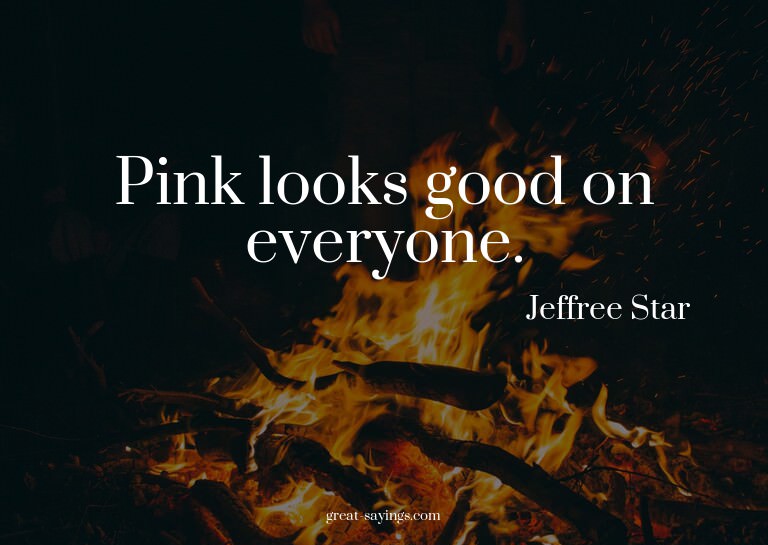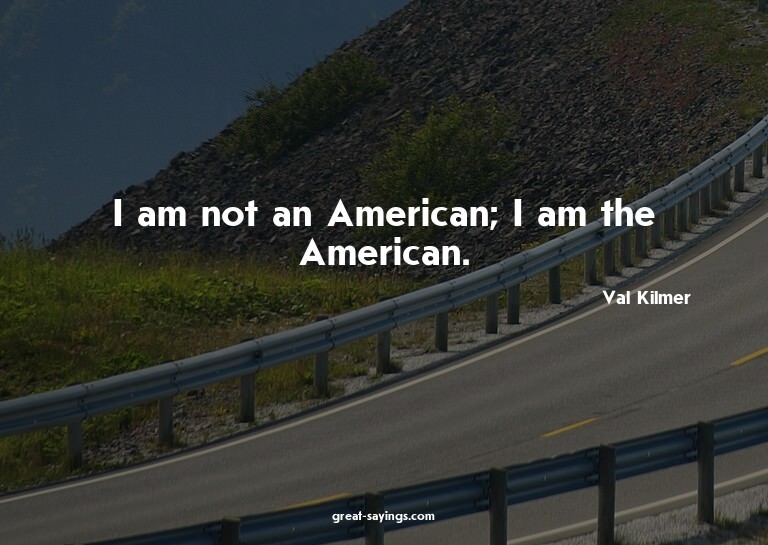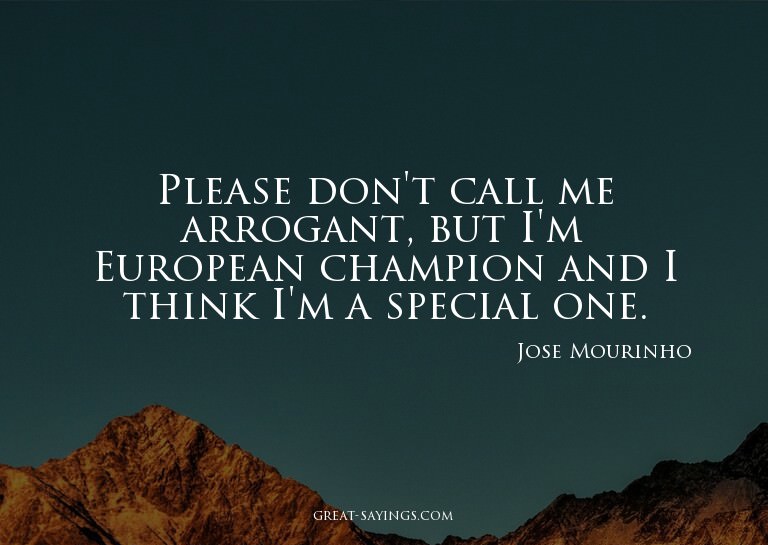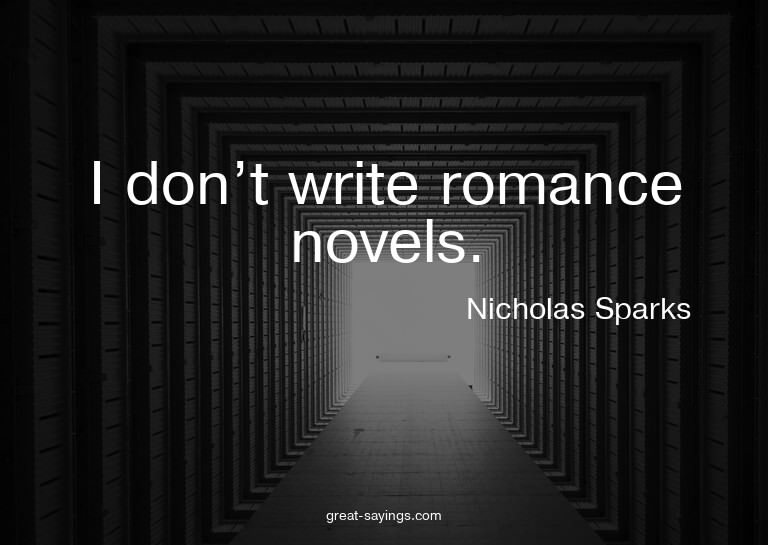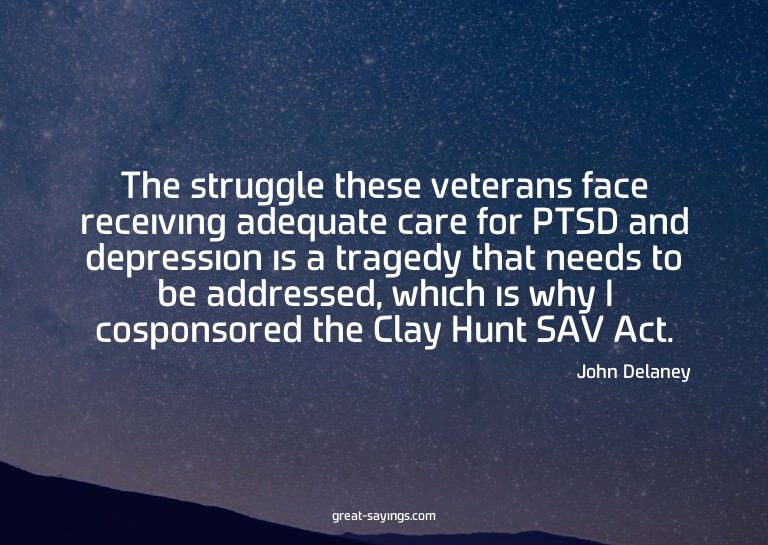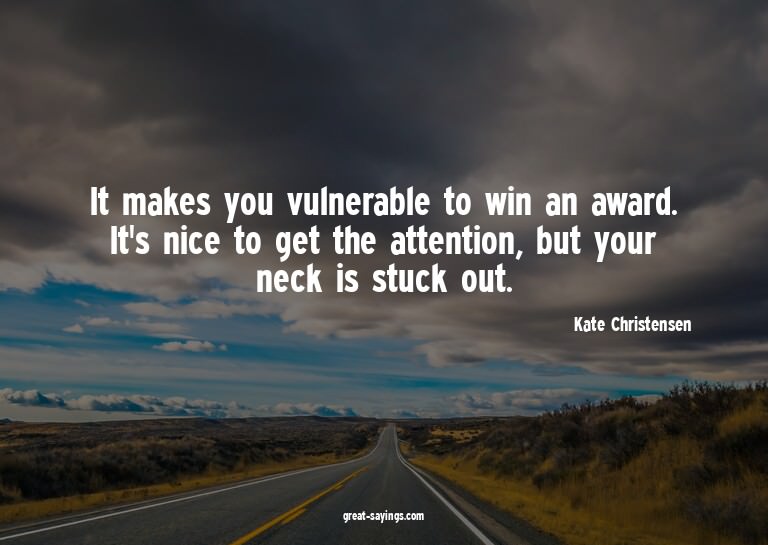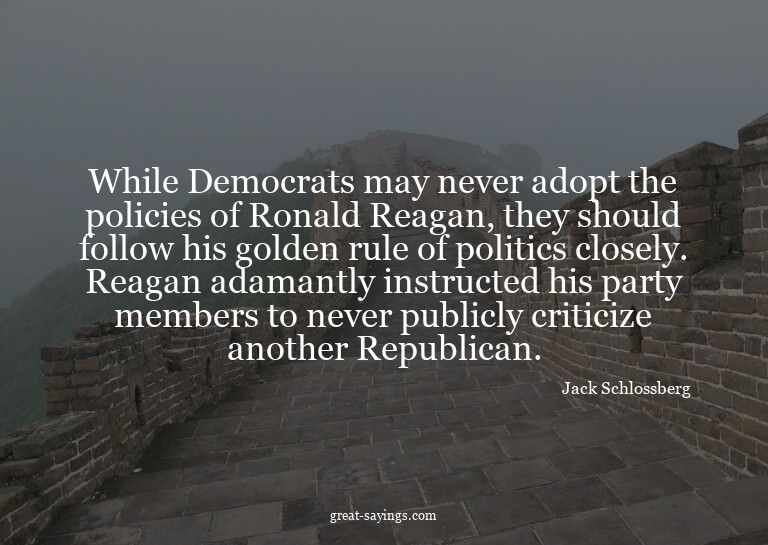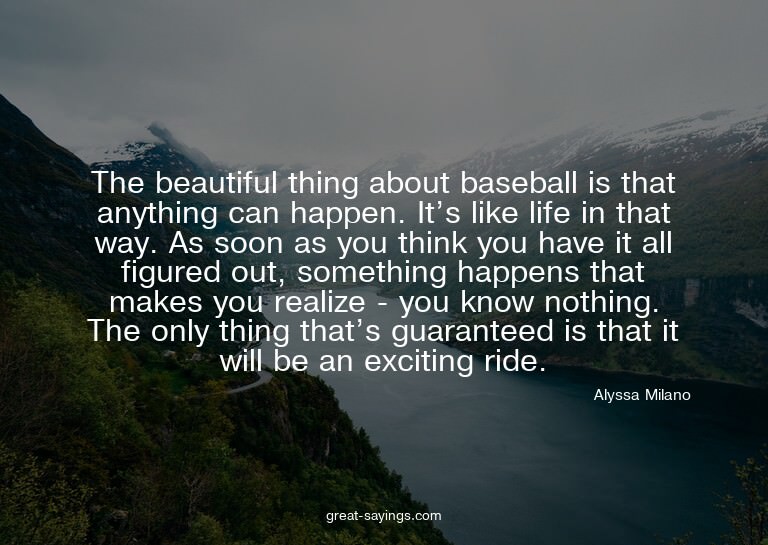Words matter. These are the best Junot Diaz Quotes, and they’re great for sharing with your friends.
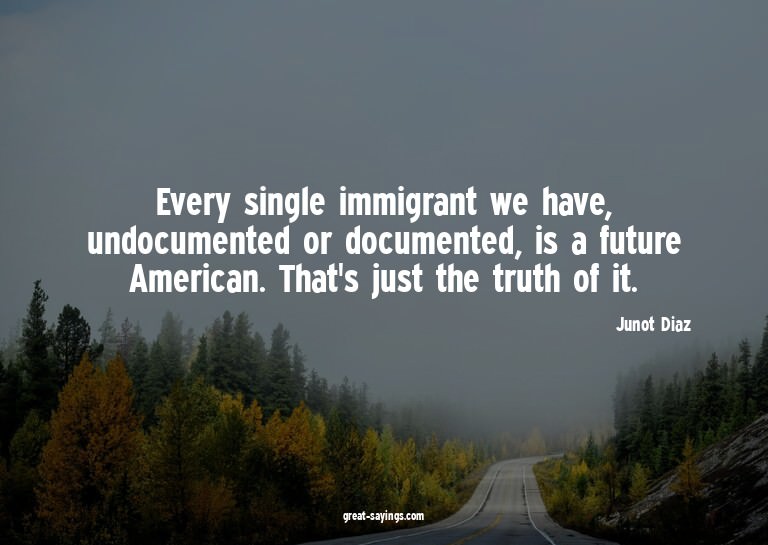
Every single immigrant we have, undocumented or documented, is a future American. That’s just the truth of it.
I’m of African descent and my sister looks completely black, but I didn’t look black. I was the super-nerdy kid who was also willing to fight.
For kind of sophisticated art I’m interested in, the larger structural rebuke has to be so subtle that it has to be distributed at an almost sub-atomic level. Otherwise, you fall into the kind of preachy, moralistic fable that I don’t think makes for good literature.
I know for a fact that – it’s just the way our biases work now in the industry of literature, but certainly a short story collection does not receive the same kind of attention as a novel.
Stereotypes, they’re sensual, cultural weapons. That’s the way that we attack people. At an artistic level, stereotypes are terrible writing.
We all dream dreams of unity, of purity; we all dream that there’s an authoritative voice out there that will explain things, including ourselves.
Genre might certainly increase some of your narrative freedoms, but it also diminishes others. That’s the nature of genre.
Books don’t live and die by awards. You don’t listen to an Hector Lavoe album because it won some awards.
I mean in the community that I grew up in, you know, a very, you know, mixed, almost entirely African Diaspora community, one of the things that we were not ever supposed to say was how much self-hatred and colorism determined and guided what we would call our desire. In other words, what we would consider beautiful.
My greatest responsibility is to acknowledge the mistakes and the shortcomings of the country in which I live, to acknowledge my privileges, and to try to make it a better place.
I write incredibly slowly. And, on top of that, I spent my entire youth and twenties working like a dog, so one of the things that happened when I finished ‘Drown’ was that I got busy living. I’d never travelled, I’d never seen anything. So I did as much travelling as my job teaching would allow.
I wrote my first sucio story, as I call them, in 1997. This was always my ‘cheater’s book,’ my book about sucios desgraciados. My plan was to write a book about how people deal with love and loss.
I love ‘The Autobiography of Malcolm X.’ That was like the only black book we read in high school.
When I got heartbroken at 20, it just felt like someone had spiraled a football right into my skull. At 40, it feels like someone had driven a 757 right through me.
When I read Toni Morrison and Sandra Cisneros as a freshman at Rutgers, it all clicked – that writing was all I wanted to do. It became my calling.
I write for the people I grew up with. I took extreme pains for my book to not be a native informant. Not: ‘This is Dominican food. This is a Spanish word.’ I trust my readers, even non-Spanish ones.
A young person, or someone who’s writing in a different way – in some ways you could say, eventually someone will find them. Eventually someone will hear them. But it’s good a lot of young people persevere. Because sometimes you have to send something out a thousand times before anyone recognizes your value.
Like most lit nerds, I’m a voracious reader. I never got enough poetry under my belt growing up but I do read it – some of my favorites, Gina Franco and Angela Shaw and Cornelius Eady and Kevin Young, remind me daily that unless the words sing and dance, what’s the use of putting them down on paper.
I’m just this Dominican kid from New Jersey.
I was part of that group of kids growing up in the ’80s under the Reagan regime, what I used to call ‘living in the shadow of Dr. Manhattan,’ where we would have dreams all the time that New York City was being destroyed, and that that wall of light and destruction was rolling out and would just devour our neighborhood.
I’m sure I’m one of those undiagnosed people with social anxiety.
I don’t think you can be from the Caribbean and not know a certain amount about the apocalypse.
I’m one of those apocalyptics. From the start of my immigrant days, I’ve been fascinated by end-of-the-world stories, by outbreak narratives, and always wanted to set a world-ender on Hispaniola.
My novel, which I had started with such hope shortly after publishing my first book of stories, wouldn’t budge past the 75-page mark. Nothing I wrote past page 75 made any kind of sense. Nothing. Which would have been fine if the first 75 pages hadn’t been pretty damn cool.
Stories are hard. I have friends who knock out stories on a weekly or monthly basis, like they’re running on medicinal-strength Updike. But for me a story is as daunting a prospect as a novel.
I am a chatty person, but colossally discreet.
When I enter that higher-order space that’s required to write, I’m a better human. For whatever my writing is, wherever it’s ranked, it definitely is the one place that I get to be beautiful.
I grew up in the shadow of the Trujillato, saw how the regime had ravaged so many families.
I think the average guy thinks they’re pro-woman, just because they think they’re a nice guy and someone has told them that they’re awesome. But the truth is far from it.
You see, in my view a writer is a writer not because she writes well and easily, because she has amazing talent, because everything she does is golden. In my view a writer is a writer because even when there is no hope, even when nothing you do shows any sign of promise, you keep writing anyway.
Cities produce love and yet feel none. A strange thing when you think about it, but perhaps fitting. Cities need that love more than most of us care to imagine. Cities, after all, for all their massiveness, all their there-ness, are acutely vulnerable.
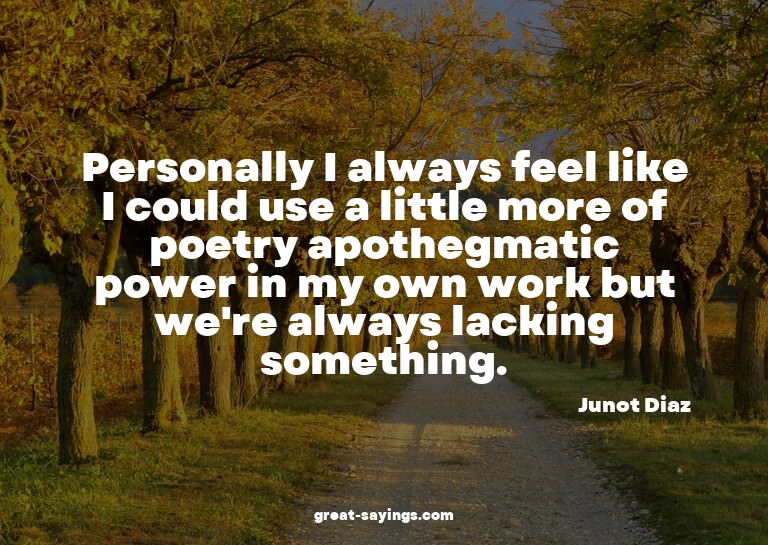
Personally I always feel like I could use a little more of poetry apothegmatic power in my own work but we’re always lacking something.
In fact, looking at the darkest sides of the United States has only made me appreciate the things that we do right, the things that we do beautifully. We are, for all of our mistakes and all of our crimes, a remarkable place.
You know, I was a kid who had difficulty speaking English when I first immigrated. But in my head, when I read a book, I spoke English perfectly. No one could correct my Spanish. And I think that I retreated to books as a way, you know, to be, like, masterful in a language that was really difficult for me for many years.
I look most like myself… when I’m wearing my black, nerdy engineering glasses.
I think there’s something really painful about your identity being entirely composed of ghosts. For me, I didn’t want to be this kid whose Dominicanness was something caught utterly in the past, is an abstraction, the thing that I write about. Instead I wanted it to be, first and foremost, a thing that I lived.
For me it’s a remarkable thing that there is a prize celebrating and honouring and making for a brief moment short fiction the centre of the literary universe.
Love is understood, in a historical way, as one of the great human vocations – but its counterspell has always been infidelity. This terrible, terrible betrayal that can tear apart not only another person, not only oneself, but whole families.
My thing is, I’m just way too harsh. It’s an enormous impediment, and that’s just the truth of it. It doesn’t make me any better, make me any worse, it certainly isn’t more valorous. I have a character defect, man.
We have a whole bunch of young people and a whole bunch of families. Are we going to disrupt these families and tear them apart? Or are we going think, like, listen – these people are here. We’ve got to deal with this reality. We’ve got to extend the franchise.
I’m still trying to figure out how to write about cancer and my family’s experience with it. If I had been able to write ‘The Pura Principle’ back in those days, I’m positive it would have had no humor in it. Which means the story would have been false.
I write very, very slowly, and for me, I have to summon all sorts of resources to make one of these pieces work.
If you, like, consciously think about being cool, you’re not cool. If you consciously think about being, like, different or original, you ain’t different or original.
Nobody warned me that when you fall in love, you really fall in love forever.
Let me tell you, if I could write one-tenth as fast as some of my friends, I’d be made. I’d be it. But instead I happen to be, in the tree of life of writers, down at the bottom, with the hematodes.
I was neither black enough for the black kids or Dominican enough for the Dominican kids. I didn’t have a safe category.
I don’t think I could have tackled ‘The Pura Principle’ until now. It takes me about twenty years to come to term with any difficult period in my life, to get enough of a grasp on it to fictionalize it.
To an outsider, I just seem like a list of accomplishments. To me, all there is is how often I fail.
Spin is ‘something is beautiful because we say it’s beautiful.’
Artists are not cheerleaders, and we’re not the heads of tourism boards. We expose and discuss what is problematic, what is contradictory, what is hurtful and what is silenced in the culture we’re in.
Infidelity raises profound questions about intimacy.
I mean, look, we’re living in a country where you can’t have a non-denominational response. If you’re slightly critical of either party, all of the partisans jump on you like you’re a lunatic.
Pages: 1 2


